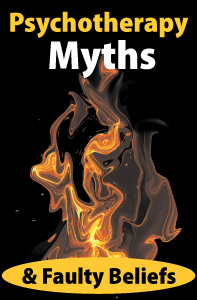SALE
$19.5
REG. $39

Related Courses

Psychotherapy Myths & Faulty Beliefs

Ethics & Risk Management: Expert Tips 8
Ethics & Risk Management: Expert Tips 7
Eric A. Harris, JD, EdD; Edward Zuckerman, PhD; Bruce Borkosky, PsyD; et al.
CE Credit: 3 Hours
Target Audience: Psychology CE | Counseling CE | Social Work CE | Marriage & Family Therapy CE
Learning Level: Intermediate
Course Abstract
Closeout Course #30-81 | 2015 | 43 pages | 34 posttest questions
Learning Objectives
Professional Development Resources, #1046, is approved as an ACE provider to offer social work continuing education by the Association of Social Work Boards (ASWB) Approved Continuing Education (ACE) program. Regulatory boards are the final authority on courses accepted for continuing education credit. ACE provider approval period: 6/12/2022 - 6/12/2025. Social workers completing this course receive 3 ethics continuing education credits.
Professional Development Resources is also approved by the Florida Board of Clinical Social Work, Marriage & Family Therapy, and Mental Health Counseling (#BAP346); the New York State Education Department's State Board for Social Work as an approved provider of continuing education for licensed social workers (#SW-0664 - Note: New York social workers will receive 3 continuing education credit(s) for completing this self-study course); the Ohio Counselor, Social Worker, and Marriage & Family Therapist Board (#RCST100501 - Note: Ohio social workers completing this course will receive 3 ethics continuing education credit(s); the Texas State Board of Social Worker Examiners (#5678); and is CE Broker compliant (#50-1635 - all courses are reported within two business days of completion).
This online course provides instant access to the course materials (PDF download) and CE test. The course is text-based (reading) and the CE test is open-book (you can print the test to mark your answers on it while reading the course document).
Successful completion of this course involves passing an online test (80% required, 3 chances to take) and we ask that you also complete a brief course evaluation. Click here to learn more.
Have a question? Contact us. We’re here to help!
Eric A. Harris, JD, EdD, is a lawyer and psychologist. He is in part-time clinical practice. He is a consultant and has lectured on risk management and managed care issues. He may be reached by e-mail at: Jegseah@aol.com
Disclosure:
Financial: No relevant financial relationship exists.
Nonfinancial: No relevant nonfinancial relationship exists.
Edward Zuckerman, PhD, has worked in community mental health, taught at the University of Pittsburgh and Carnegie Mellon and was in independent practice for almost 20 years. He earned his PhD in clinical psychology from the University of Pittsburgh. Dr. Zuckerman is the author of the best-selling The Paper Office, which contains all the forms and guidance one needs to operate a private practice legally, ethically, and profitably (see www.theclinicianstoolbox.com). Dr. Zuckerman also edits the series of books called The Clinician's Toolbox for Guilford Press.
Disclosure:
Financial: Dr. Zuckerman is an author for Professional Development Resources and receives royalties on sales of his courses.
Nonfinancial: No relevant nonfinancial relationship exists.
Bruce Borkosky, PsyD, is a clinical and forensic psychologist in Sebring, FL. He is available for consultation in the areas of licensing complaints, ethics, informed consent, records, confidentiality, privilege, access and HIPAA. His website is: http://www.fl-forensic.com/ (Note: his article with citations is available at http://bit.ly/19lsHZC)
Disclosure:
Financial: No relevant financial relationship exists.
Nonfinancial: No relevant nonfinancial relationship exists.
Customer Reviews